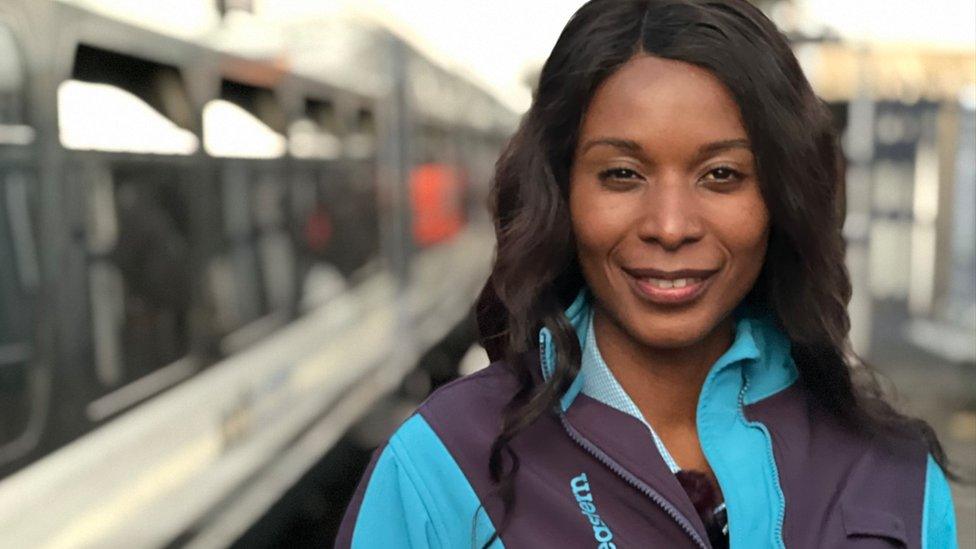Southeastern pushes for better gender balance
- Published

At Southeastern one in 10 drivers are women - double what it was a decade ago
A rail company has said it has doubled the amount of female train drivers in the past four years.
Southeastern said it was trying to attract more women to its workforce - not just drivers - with an aim to improving diversity.
The company said the increase was due to an improved focus on flexible working and an openness to discussing "taboo subjects".
It currently employs 1,171 drivers - 111 of those women, approximately 10%.
Jane Fentaman, 41, from Rochester, became the first female shunter driver Southeastern ever recruited. She then qualified as a passenger train driver two years ago.
She said she joined the profession "to serve".
"Whether it be a most important job interview or you're going for a doctor's appointment or I'm taking your children to school. That is what brings joy and that is why I became a train driver", she said.
Ms Fentaman said it "felt great" to "break the norm" however, despite progress, change "should have happened" years ago.
"Women are very capable and it astounds me that it has taken as long as it has to get to where we are today," she added.

Karen Harrison became the first female train driver in the UK in 1978
In 1978, Karen Harrison was the first woman in Britain to become a train driver. She said it was "open warfare" and that some people refused to work with her.
Maureen Dominey, head of performance at Southeastern and chair of Women In Rail Empowerment (WIRE) group, said talking about "taboo subjects" such as the menopause, endometriosis and fertility helps people feel listened to and understood at work.
"We can make sure that we've got appropriate policies and procedures in place to support people going through those things," she said.

Follow BBC South East on Facebook, external, on Twitter, external, and on Instagram, external. Send your story ideas to southeasttoday@bbc.co.uk, external.